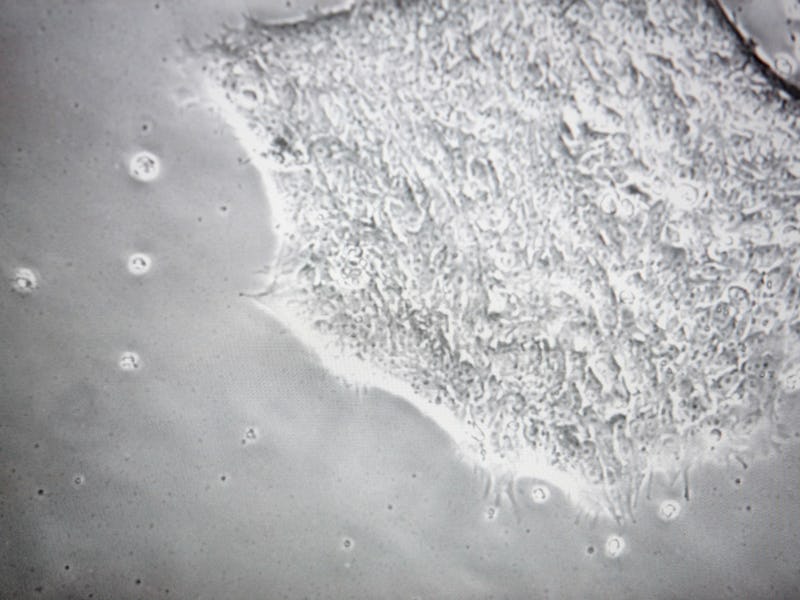Ethicists Support Genetically Modified Human Embryos
An international group of scientists and policy makers just released a statement advocating moral research.

It’s been five months since a Chinese group from Sun Yat-Sen University announced they’d created the world’s first genetically modified human embryo, and while arguments are still raging over the ethics of that leap, the Hinxton Group, with its membership of stem cell researchers, bioethicists, and policy experts, is now saying it was of “tremendous value” to science.
The statement comes from The Guardian. The group stops short of saying we should allow genetically modified babies to be born, but that as the gene-editing advances “there is and will be pressure to make decisions scientifically and for funding, publishing and governance purposes.”
The health benefits of such work are not simply speculative. In the case of the Chinese embryo, researchers altered the mutant DNA responsible for beta thalassemia, a life-threatening blood disorder affecting about 100,000 people. On the other side of the debate are reasonable concerns about the ethics of making a “designer baby” and the fact that the Chinese breakthrough only came after editing failed in unpredictable ways in multiple embryos along the way. Those concerns are just some of the reasons the U.S. National Institutes of Health still refuses funding for any gene-editing in human embryos.
The Hinxton Group agrees that embryos shouldn’t be brought to term, its call seems to skirt the “designer baby” worries. And Chinese scientists only used non-viable embryos from IVF clinics, so it’s not as if they prevented someone from being born. Weighed between what are essentially inert genetic building blocks and the potential for new treatments and cures for the already living, advocating on behalf of those of us who moved past the embryo stage at least nine months ago sounds fair.